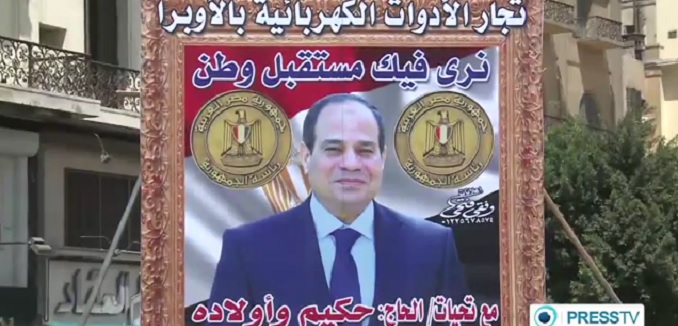Egyptian outlets on Tuesday carried reports that Saudi Arabia would – per a writeup in the English-language Egypt Independent – “announce a large aid package to Egypt if former Defense Minister Abdel Fattah al-Sisi wins the elections,” a scenario that analysts broadly if not universally anticipate will play out.
Saudi officials reportedly indicated that Sisi’s mere election would however be inadequate, and that they would only release resources to Cairo if the rest of Egypt’s political institutions visibly supported him.
The news emerges amid several other moves by the Saudis to bolster both the conventional and potentially nonconventional deterrents of the Arab world in response to what they perceive to be inadequate American concerns over Shiite expansionism.
Simon Henderson – the Washington Institute’s Baker fellow and the director of its Gulf and Energy Policy Program – outlined on Tuesday how Riyadh’s move to include long-range Chinese missiles in a recent military parade was “likely a diplomatic signal to Iran and the United States” of the Kingdom’s “determination to counter Tehran’s growing strength, as well as its readiness to act independently of the United States”:
Using military displays to send diplomatic messages can spur responses in kind from other states. But for Iran, any counter-display could prompt more pressure to include the regime’s much larger missile force in the nuclear negotiations. For Washington, the Saudi display is a reminder that Riyadh remains profoundly concerned about the course of events in the region. As the dominance of U.S.-supplied equipment in the parade indicated, Washington is still the kingdom’s preferred security partner, but the relationship continues to show signs of being frayed.
The Saudis have also sought to lead Gulf States in forging military alliances with Jordan and Morocco, which would bring additional troops into the fold of the Gulf Cooperation Council (GCC). Last week Prince Turki al-Faisal, a former intelligence chief and still a top figure in the Kingdom’s royal family, suggested that the GCC would have to acquire “nuclear knowhow” to counter Tehran’s progress in weaponizing its atomic program.
Some observers have criticized the Obama administration for being insufficiently clear in its support for Washington’s traditional Arab allies.
[Photo: PressTV News Videos / YouTube]




